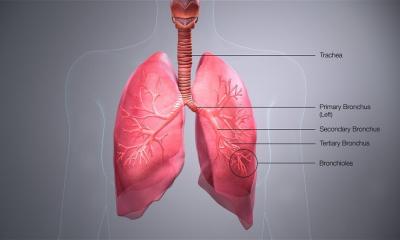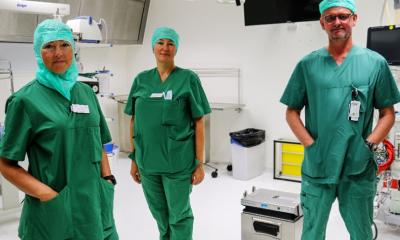Study
British lung transplant patients fare better than Americans
Publicly insured Americans who undergo lung transplantation for cystic fibrosis fare markedly worse in the long run than both publicly insured patients in the United Kingdom and privately insured Americans, according to the results of a study conducted by researchers from Johns Hopkins in Baltimore and U.K. colleagues working in that nation’s government-funded National Health Service.
Cystic fibrosis, a genetic disorder that affects about 30,000 Americans and 70,000 people worldwide, stems from the body’s inability to ferry chloride in and out of cells. The disease is marked by the buildup of thick, sticky mucus in the lungs, causing frequent infections, chronic inflammation, tissue damage and premature death. Lung transplantation is an option of last resort for those with end-stage lung disease. Since 1990, about 2,800 people with cystic fibrosis have undergone the complex procedure.
The analysis, based on a review of medical records and published March 24 in the American Journal of Transplantation, reveals that publicly insured U.S. patients had overall poorer survival compared with their U.K. counterparts insured by the National Health Service. U.S. patients on Medicaid or Medicare insurance also fared worse than their privately insured fellow Americans.
“Our results indicate that the United Kingdom’s national public health insurance system outperforms its U.S. equivalent, and given that a significant portion of Americans rely on publicly funded insurance for their medical coverage, we, as a country, ought to have an honest conversation about the reasons behind this disparity and find ways to close the gap,” says senior investigator Ashish Shah, M.D., associate professor of surgery and surgical director for heart and lung transplantation at Johns Hopkins.
“The U.K. National Health Services’ lung transplant program equals the top-notch care achieved under American private insurance and outperforms care received by publicly insured Americans,” says Stephen Clark, D.M., professor of cardiothoracic surgery at the University of Northumbria and Freeman Hospital in Newcastle and lead investigator of the U.K. team. “The results of the study underscore the ability of publicly funded health care systems to achieve excellent results in complex transplant surgery, and this is something we are rather proud of.”
The researchers emphasize that their study did not look into the specific causes of the difference in survival rates but say their findings warrant a careful look into the factors driving the gap if it is to be eliminated. “Lung transplantation is among the most complex procedures performed today, one that requires a wealth of resources and careful long-term management by multiple specialists, and as such remains an imperfect therapy,” Shah says. “So it is paramount that we pinpoint and eliminate any systemic factors that interfere with its success.”
For their analysis, investigators compared 12 years’ worth of records detailing survival and death among more than 2,700 patients with cystic fibrosis, 12 and older, who underwent lung or combined heart-lung transplantation in the United States or the United Kingdom between 2000 and 2011.
Of the 2,307 U.S. patients in the study, 39 percent (894) had publicly funded health insurance through Medicare or Medicaid. All of the U.K. patients were publicly insured through the National Health Service. Postoperative outcomes in the immediate aftermath of the surgery —between a month and three months following the operation — were similar between U.K. and U.S. patients, but a marked difference emerged over the long run.
The average survival was 8.1 years among U.K. patients, 7.9 years among privately insured Americans and 4.7 years among publically insured Americans. The differences persisted even after researchers accounted for the influence of factors known to affect survival, including age, overall health and the condition of a patient’s lungs leading up to transplantation.
Although previous studies have examined country-by-country variations in such health indicators as infant mortality, women’s health, cancer therapy and cardiac care, the researchers say theirs is the first international comparison of lung transplant outcomes in patients with cystic fibrosis.
The researchers say their findings suggest that a single-payer national health care system can provide complex, coordinated and expansive care, and attain long-term outcomes similar to those achieved by private health insurance. “One of the popular criticisms of a single-payer health system has been the fear of scarcity of resources and rationing that may lead to suboptimal care,” says study lead author Christian Merlo, M.D., M.P.H., a pulmonary and critical care specialist and assistant professor of medicine at the Johns Hopkins University School of Medicine. “The comparable outcomes between lung transplant patients with public health insurance in the U.K. and their privately insured U.S. counterparts indicate this fear may be unfounded or largely exaggerated.”
Other Johns Hopkins investigators involved in the research included George Arnaoutakis and Jonathan Orens. In addition to Stephen Clark, the U.K. research team included Helen Thomas, Nizar Yonan, Debra Thomas, Andre Simon and Richard Thompson.
Source: Johns Hopkins Medicine
24.03.2015











